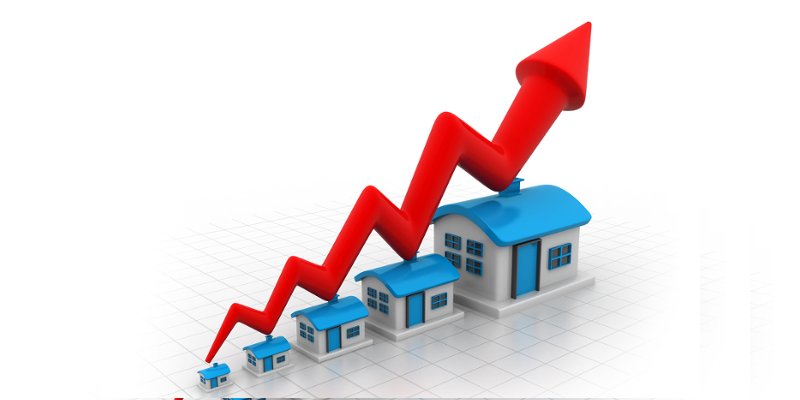Prices rose by 0.8% in September to push the annual rate of growthfrom 2.6% in August to 4.0% in September.

House prices rose by 4% from July to September annually – the fastest rate of increase since February, Halifax’s house price index has found.
Prices rose by 0.8% in September to push the annual rate of growthfrom 2.6% in the three months to August to 4.0% in September.
Russell Galley, managing director, Halifax Community Bank, said: “While the quarterly and annual rates of house price growth have improved, they are lower than at the start of the year.
“UK house prices continue to be supported by an ongoing shortage of properties for sale and solid growth in full-time employment.
“However, increasing pressure on spending power and continuing affordability concerns may well dampen buyer demand.
“There has been recent speculation on the possibility of a rise in the Bank of England base rate. We do not anticipate this will have a significant effect on transaction volumes.”
Russell Quirk, founder and chief executive of eMoov.co.uk, said: “It seems more than apparent that the UK market has found its feet and is starting to gain momentum again.
“This momentum is unlikely to regress despite the ongoing spectacle of Britain leaving the EU.
“In addition, while an increase in interest rates seems very likely over the coming months, they are already at such a low level that any increase is likely to be marginal and insignificant when it comes to impacting or deterring buyers.
“With the ongoing issue of building supply, UK homeowners can be assured the price of their property will remain stable as we head towards 2018.”
Jonathan Samuels, chief executive of the property lender, Octane Capital, described the property market as being in limbo despite the growth.
He said: “The price growth we’re seeing is bittersweet, driven by weak supply more than consumer confidence and economic strength.
"Structural supply problems, a shortage of properties for sale and a robust jobs market are keeping the property market afloat.
"Even if rates are hiked this year or in early 2018, the consensus is that they are unlikely to rise more than quarter of a per cent.”
He added: "The stakes are simply too high and the economic backdrop too uncertain for anything more than a nominal rise in interest rates.
"Since any rate rises will be limited, the impact on transaction volumes may indeed be negligible in the near term.
"It's when rates start creeping towards and above 1% that we are likely to see confidence hit.
"That's when things start to change and when prices could come under increased pressure.”
Lucy Pendleton, director of independent estate agents James Pendleton, felt the rise is primarily due to the time of year.
She said: “The back-to-school bounce in September is likely the cause of this substantial rebound in growth.
“It is an annual trend which sees a backlog of transactions brokered in the summer months complete in September once everyone comes back from holiday.
“What that often means is that the prices attached to those transactions reflect where the market was much earlier in the year, when prices were higher.
“On the face of it, this rate of annual growth shoots the market right over the head of inflation with a healthy 1.1% gap and means homeowners are no longer living in an investment that is losing money in real terms.”
She added: “You would think this data would instil much more confidence among sellers but actually this seasonal distortion is quite misleading and you could see price growth soften just as quickly in the coming months.
“In London, we are currently seeing many more price reductions at bigger discounts compared with last year.
“A vendor who commits to a significant price reduction one week is selling the next.
“This will provide some comfort to first-time buyers who are desperate to see prices come back down to Earth rather than take off again, particularly in the capital.”



